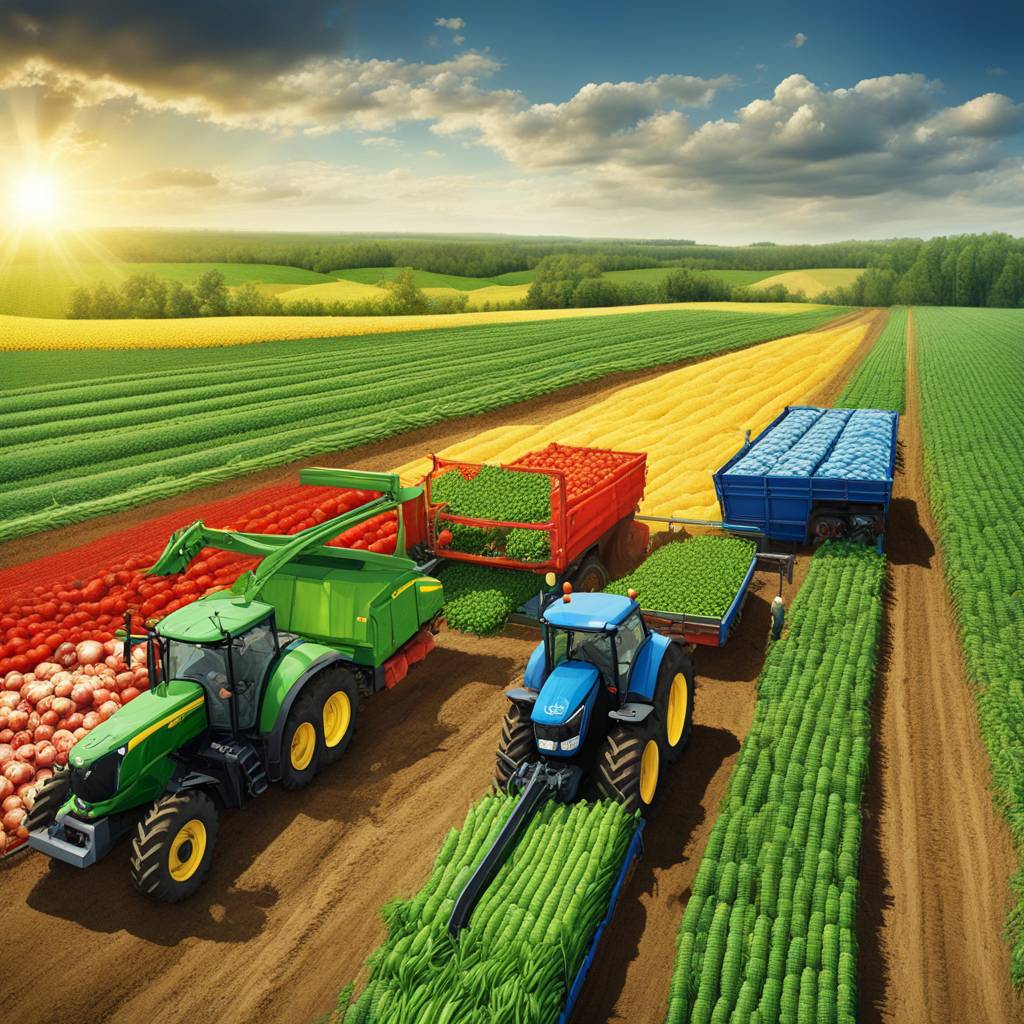Ukrainian Prime Minister Denys Shmyhal and Polish Prime Minister Donald Tusk have been working to address the concerns of Polish and western European farmers regarding cheap Ukrainian food imports that are perceived to be undercutting their livelihoods. Violent protests and blockades of Poland’s border crossings with Ukraine have occurred as a result of this issue. While some progress has been made during talks between the two leaders, no breakthrough has been announced. Both parties believe that finding a solution that benefits both sides is crucial, and they have called for the European Union to impose a 50% tax on Russian and Belarusian food imports to help alleviate the pressure on the EU food market and support Ukraine’s agricultural sector.
Tensions have grown between Ukraine and Poland over the tax-free influx of Ukraine’s agricultural products, with European farmers protesting against cheap imports from Ukraine. During discussions, Prime Minister Tusk suggested implementing quotas on these imports and increasing Ukrainian exports to non-European countries in need. Prime Minister Shmyhal acknowledged that Ukraine has agreed to certain limitations on its exports, although the specifics were not disclosed. The EU, which has previously allowed wide access to Ukrainian agricultural products to assist with post-invasion economic recovery, has also agreed to reintroduce quotas on some Ukrainian foods in response to complaints from European farmers.
The two prime ministers have signed a joint declaration emphasizing the importance of trade liberalization measures being mutually beneficial for Poland, other EU members, and Ukraine without destabilizing their markets. They also stressed that the evolving security situation in Ukraine should be taken into account when implementing trade measures. Along with the steps taken to address the concerns of farmers, efforts are being made to lift the border blockades that have disrupted trade between Poland and Ukraine. The leaders believe that they are close to achieving their shared goal of finding solutions to the critical issues that have led to the blockades.
Prime Minister Tusk highlighted the need for cooperation to find solutions that work for both parties, recognizing the challenges faced by both European farmers and Ukrainian exporters. He emphasized the importance of balancing trade measures to support Ukraine’s economy while addressing the concerns of European farmers. Prime Minister Shmyhal acknowledged the progress made during the talks and expressed optimism about resolving the issues that have caused the blockades. Both leaders emphasized the significance of collaboration and dialogue to overcome the challenges posed by competing interests and find mutually acceptable solutions.
The EU’s response to the issue of Ukrainian food imports reflects a balancing act between supporting Ukraine’s economic recovery and addressing the concerns of European farmers. While the EU has sought to assist Ukraine by providing access to its markets, recent developments indicate a willingness to reintroduce quotas to address the complaints from European farmers. The joint efforts of Ukrainian and Polish leaders to find common ground and work towards mutually beneficial solutions demonstrate a commitment to addressing the complex challenges posed by competing economic interests. By acknowledging the changing security situation in Ukraine and emphasizing the need for trade measures to support stability and growth in the region, the leaders are seeking to navigate a delicate balance that benefits all parties involved.


